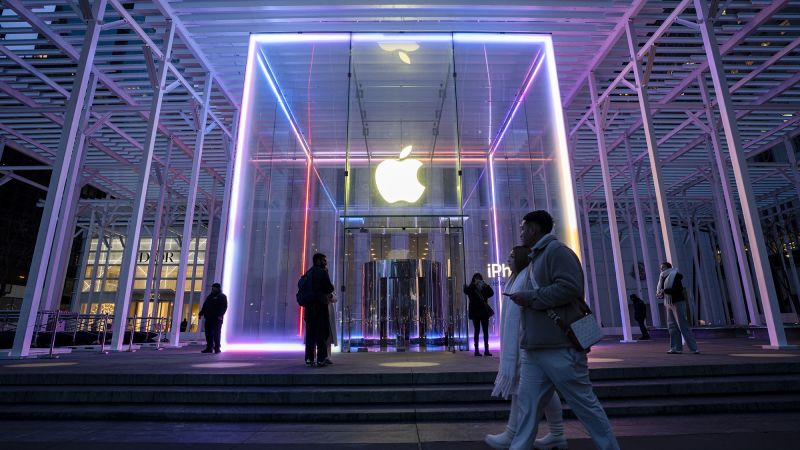In June of the previous year, Apple introduced a significantly upgraded version of Siri, proclaiming it as “the start of a new era” for the 13-year-old virtual assistant. The announcement showcased how the redesigned Siri would be capable of cross-referencing a user’s email, text messages, and real-time flight information to respond to intricate questions like, “When is my mom’s flight landing?” or “What’s our lunch plan?” This innovation raised the anticipation of Apple enthusiasts who have long awaited a more advanced and intelligent personal assistant.
However, the promising vision for Siri has proven to be more elusive than anticipated. On March 7, Apple announced an unexpected delay in the upcoming Siri update, which was initially expected to enable the assistant to provide more personalized answers utilizing users’ iPhone data and perform actions directly within applications on their behalf. This setback has sparked concerns regarding Apple’s competitiveness in the realm of artificial intelligence (AI), especially as the tech giant faces significant hurdles internally. Reports from Bloomberg indicated that an executive overseeing the Siri division described the situation as “ugly” and “embarrassing.”
The rise of AI is largely viewed as the next transformative phase in internet usage, potentially forever altering how individuals work, communicate, and seek information. Apple pioneered the mobile era with the introduction of the iPhone in 2007, and there is an increasing expectation for the company to lead the charge in AI as well. Yet, as competitors like Google and Samsung rapidly launch new models, semiconductor technologies, and AI-powered features, Apple seems to be lagging behind in this dynamic technological landscape.
The concerns for Apple extend beyond its delayed Siri improvements. The company is currently navigating issues related to potential tariffs on imports from China, which is instrumental to its iPhone supply chain. Simultaneously, the company reported an 11% year-over-year decline in sales in China, as per CEO Tim Cook’s statements during an earnings call in January. Despite a 4% growth in overall revenue year-over-year, global iPhone revenue fell short of Wall Street’s predictions during Apple’s fiscal first quarter, leading to a 12% decline in Apple’s stock price year to date.
Nevertheless, there is still a silver lining. Analysts have suggested that Apple’s extensive user base, along with the ubiquitous nature of the iPhone, provides a cushioning effect against these challenges. As Barton Crockett from Rosenblatt Securities pointed out, Apple is relatively well-positioned due to the smartphone being an established consumer staple. The iPhone remains indispensable for many, and as such, the company could leverage its robust ecosystem to weather economic fluctuations.
However, concerns regarding Apple’s artificial intelligence capabilities continue to loom large. The company only launched its initial suite of Apple Intelligence features last October, after missing the September launch of the iPhone 16, trailing behind competitors who had already integrated AI tools into their devices. By the end of 2024, Apple expects most of these features to be available, including advanced functionalities that allow users to command Siri for various tasks without navigating multiple applications.
Initially, Apple projected to introduce these innovations during the following year, leading up to the developer conference in June. Still, company spokesperson Jacqueline Roy announced a longer timeline for these features, citing the need for further development before deployment.
While rivals like Google have made headway in customizing AI interactions, such as Gemini’s ability to tailor responses based on user activity, Apple has yet to showcase comparable advancements. Ben Bajarin from Creative Strategies emphasized the urgent need for Apple to stay relevant in the AI conversation, highlighting overall public concern about the company’s apparent lack of progress.
Apple’s track record with unexpected product delays has historically been minimal. Gene Munster from Deepwater Asset Management noted that such delays reflect the company scrambling to adapt amidst increasing pressure from competitors and market demands. With Wall Street readily seeking what’s next for Apple, especially with the smartphone market plateauing, there is critical emphasis on Apple’s ability to establish itself as a leader in future technological advancements, particularly AI.
Despite these challenges, industry analysts remain optimistic about Apple’s trajectory. Dan Ives from Wedbush Securities has predicted that the company may reach new heights in the market by 2025, with Cook asserting during an earnings call that iPhone sales are stronger in areas where Apple Intelligence features are employed. Furthermore, some analysts speculate that delaying the Siri update might have been a prudent measure to prevent potential missteps akin to issues faced by firms like Google and Meta when rushing product launches.
Moreover, reports suggest Apple is working on a sleeker version of the iPhone to revitalize interest amidst evolving designs from competitors. Ultimately, while the postponement of the Siri overhaul raises questions, industry voices like Crockett urge not to overlook Apple’s broader vision, indicating a promising evolution of functionalities that will enhance user experience significantly in the years to come.



